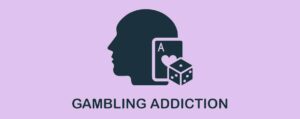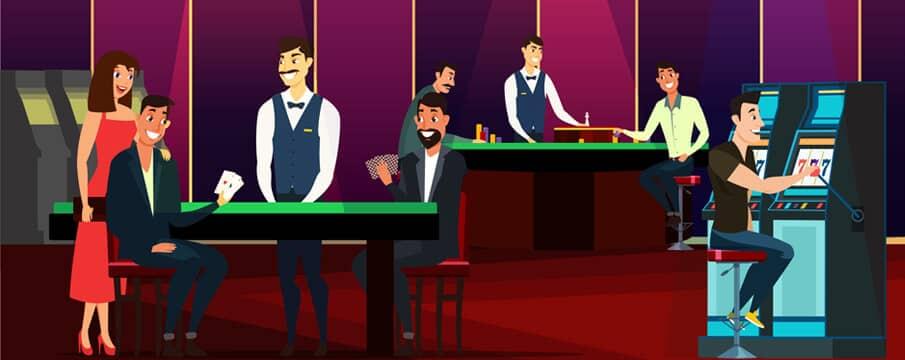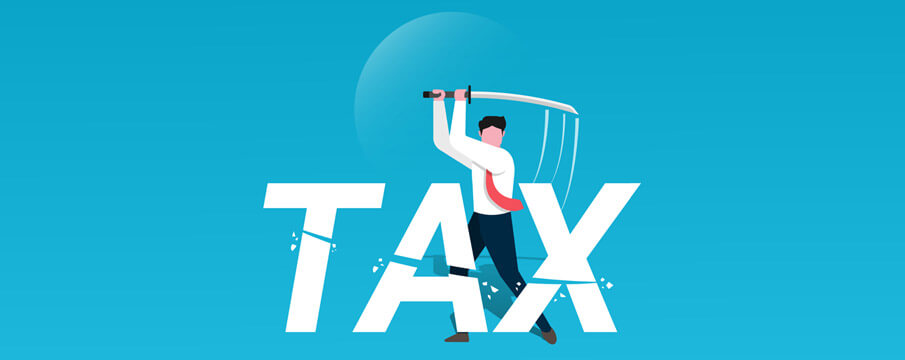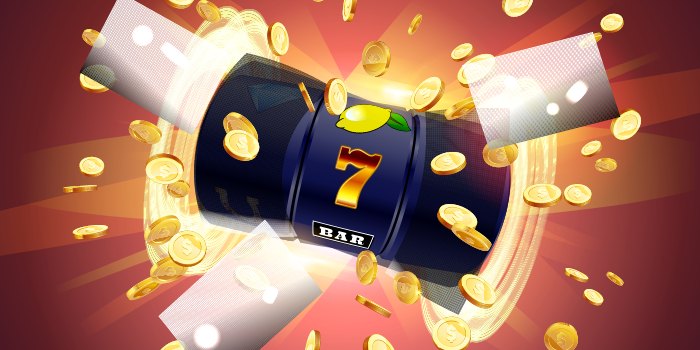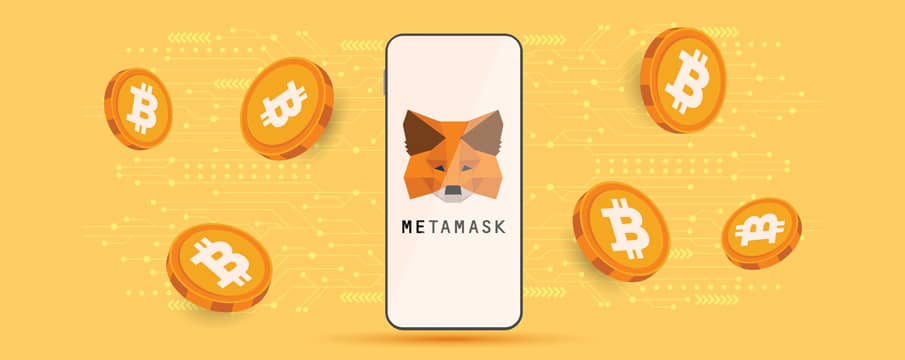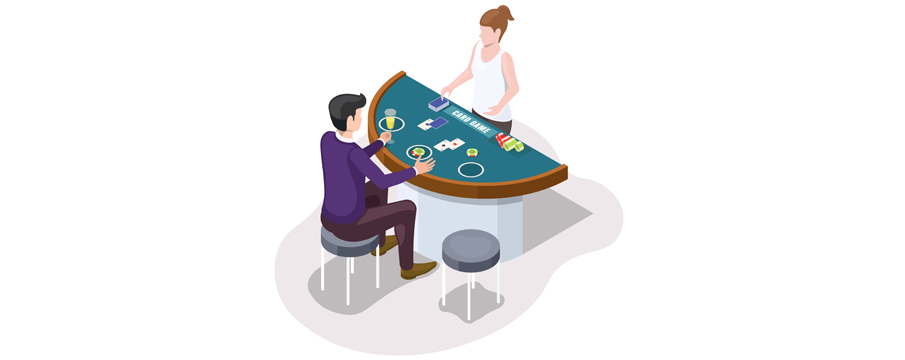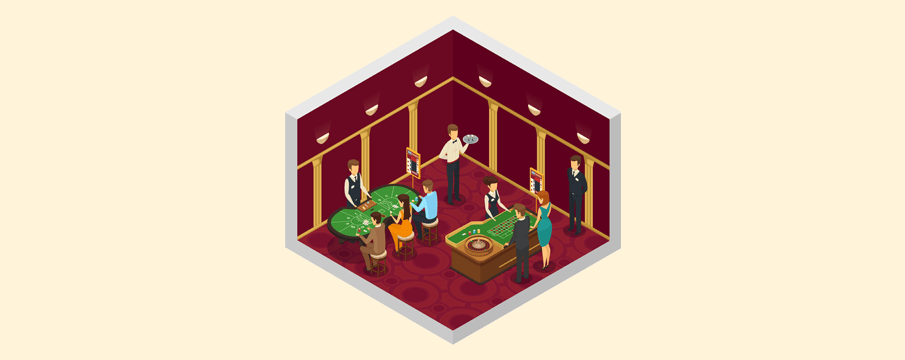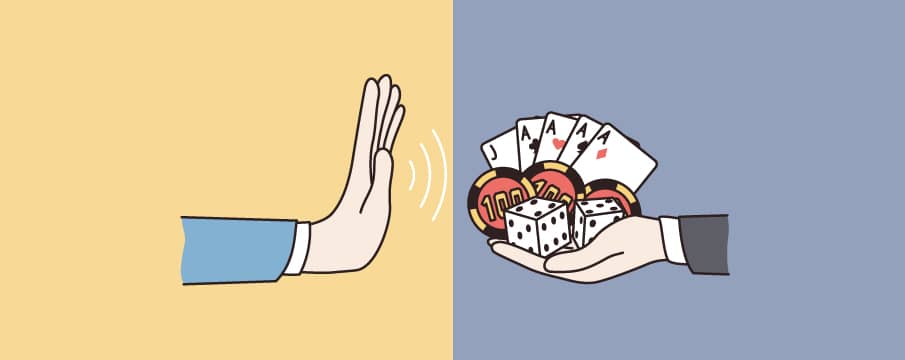- Home
- What Is Gambling Addiction and Problem Gambling?
What Is Gambling Addiction and Problem Gambling?
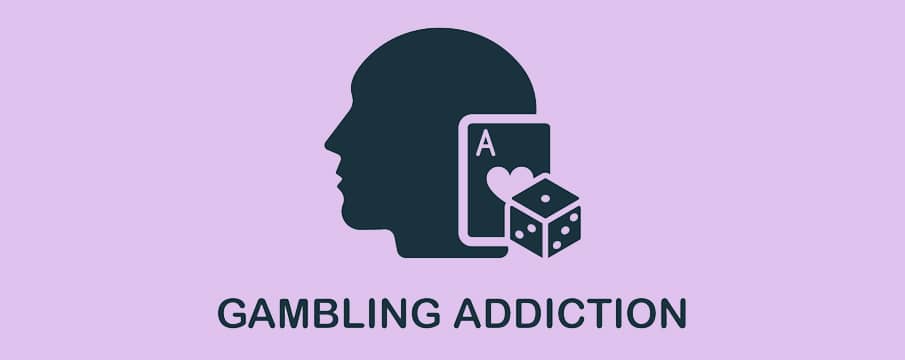
Gambling addiction is a clinically recognized problem that requires special therapy and medical intervention in most cases to achieve full recovery. The premise of gambling is simple – you risk something you have in the hopes of adding to the value of your original stake.
However, by repeatedly engaging with products recognized as gambling, many people are prone to developing gambling addiction or showing symptoms of compulsive gambling without realizing it. If you find yourself addicted to gambling, this article is your path to recovery and understanding pathological gambling better.
Gambling Addiction: Overview and Definition of Pathological Gambling
The official gambling addiction definition states that an individual must experience an uncontrollable urge to gamble with increasing amounts despite the high risk involved and possibly serious consequences for one’s own well-being or the well-being of family members, friends, and loved ones. Gambling can be addictive because it targets the brain’s reward system and leads to the release of dopamine, the hormone connected with happiness.
However, not all people are at risk of developing compulsive or pathological gambling. In fact, most people are able to resist, but a good number of people are experiencing problem gambling or are at risk of becoming compulsive gamblers themselves.
Today, gambling addiction or compulsive gambling is a mental health issue, and the addiction at its core is equated to abuse of substances such as alcohol and drugs. Gambling affects more men than women, but it is a genderless disorder with a high incidence across the human population. Different countries around the world recognize gambling addiction as a serious mental problem that needs specialist intervention.
The term compulsion is used to describe an independent aberration but today compulsive gambling is equated to or synonymous with gambling addiction.
How Does Gambling Addiction Affect People?
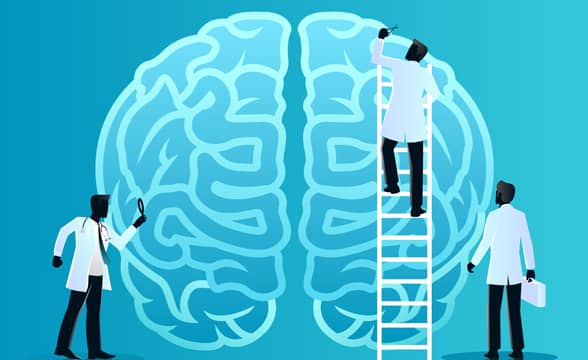
Problem gambling begins discreetly and privately. In most cases, an individual is unaware that they are developing an addiction to compulsive gambling right to the point where the condition starts interfering with day-to-day chores and responsibilities. Anxiety or depression is another concomitant symptom of burgeoning or pathological gambling addiction. Similar to other addictions, as in the case of substance addicts who overuse drugs or alcohol, problem gambling is driven by a chemical component in the brain.
Compulsive gamblers feel rewarded for pursuing an activity that feels good, but this feeling of elation or ‘high,’ is connected to a chemical response from the brain that floods the frontal cortex with dopamine. Addictive substances may trick the brain into releasing these hormones that are ten levels above normal levels.
Studies have established that gambling products can elicit the same chemical response from people’s brains, leading to high-dopamine production and spiraling into problem gambling without the knowledge of the individual.
Impulsivity and reward-seeking behavior become norms without explanation and perfectly ordinary individuals begin to behave as problem gamblers, showing symptoms and signs of gambling addiction that appear almost without a warning. Today gambling addiction is also referred to as gambling disorder and it encompasses an effort by the scientific community, including the American Psychiatric Association, to establish the reasons behind addictive behavior, in gambling and beyond.
By now, research has shown that addicts, regardless of their chosen form of addiction, whether that is substance abuse problems or gambling products, have a genetic predisposition that gives insight into how these problems develop, evolve, and how they can be eventually treated to the benefit of problem gamblers. Gambling is officially recognized as an impulse control disorder and this is good news because treatment professionals are tasked with making feel better. But first, they need to know how to read the symptoms.
How to Identify Gambling Addiction Symptoms and Signs?
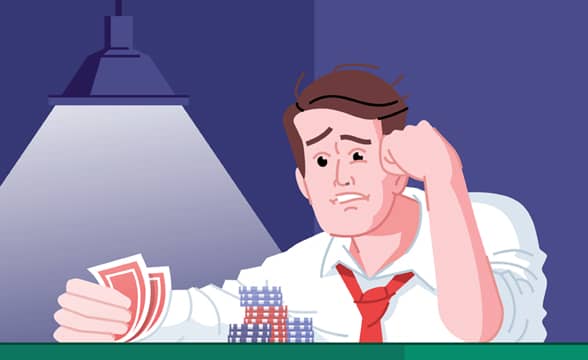
Gambling addiction in patients tends to be approached differently. To start helping, though, experts must first identify gambling addiction signs and symptoms, which is essential to getting an early start in treatment. These symptoms will vary between individuals in terms of intensity and some may remain hidden until very late in the addiction.
From the standpoint of most problem gamblers, gambling addiction is described as a complete loss of control over the individual’s ability to control spending habits, even though the potentially ruinous consequences are well-understood by the majority of pathological gamblers.
Therefore, problem gambling will always pivot around core behavioral aberrations that can be predicted, studied, and counterweighted in therapy or by the individual themselves depending on how advanced the compulsion is.
To spot a symptom, you may use our manual, which will help you help determine if you are currently showing compulsive gambling symptoms to a point where they need professional help.
Even if you are not a problem gambler, it is always important to monitor your condition, especially if you have a history of substance abuse in your family or recognize addictive patterns in your own behavior. Here are several points that constitute symptoms and signs of gambling addiction.
Do You Show These Symptoms of Compulsive Gambling?
Thanks to clinical experience and government-funded research, we understand the downsides of gambling a little better. Moreover, studying gambling has allowed health experts to come up with a very detailed breakdown and create accessible help materials that will assist you in identifying a problem if there is one. More importantly, remember to answer truthfully the following questions for accurate results:
- Do you gamble or bet more than you can afford to lose?
- Have you found yourself in situations where you have ignored social responsibility so that you may continue gambling?
- Do you gamble immediately after a big win without any time to ‘cool down’
- Have you experienced financial difficulties caused by your gambling behavior and habits?
- Do you find yourself preoccupied with gambling thoughts and an urge to gamble at inappropriate times?
- Have you had falling out with friends, family members, or a loved one over gambling or the amounts you spend on various gambling games?
- Are you in the habit of borrowing money to be able to continue gambling?
- Do you find yourself unable to walk away from gambling when the activity is clearly hurting you financially and emotionally?
- Do you gamble in an attempt to recover losses?
The National Healthcare System (NHS) in the United Kingdom recommends using a four-answer system where you will score differently based on your answers. Your answers should be ‘never,’ ‘sometimes,’ ‘most of the time,’ almost always’ and you should score 0, 1, 2, and 3 for each respectively. If your score is higher than 8, the NHS suggests that you may be a problem gambler or you may have a gambling addiction.
How to Stop Gambling Addiction?
Pathological gambling is not an easy thing to deal with, and this is why governments continue to spend money on research and fund specialist clinic centers. While some individuals may find it easier to distance themselves from compulsive gambling, for others fighting addiction is a lifelong struggle.
Compulsion has a powerful pull and most health experts try to find a way that individuals can stay away from temptation, and resist their craving to gamble. With this said, stopping gambling is easy, but replacing it with a positive, constructive emotion can take time, effort, and grit.
The good news is that despite the difficulties, maintaining recovery is very possible, although it may require lifestyle changes and constant effort of will on your part. Certain pathologies, such as mental disorders, can be channeled into something positive. Start small and remember that exerting control over behavior is essential to long-lasting effects. Self-help is a good place to start, but you may seek professional help over time.
Avoid Situations Where You Are Tempted to Gamble
When you are a diagnosed gambling addict, the best thing you can do is to stop gambling. To do so, you must put some distance between gambling products and yourself. However, this is difficult at a time when the Internet makes it very easy for gambling firms to have targeted outreach through data use. Because of this, gambling companies know exactly who wishes to gamble based on social media and browser history.
Thankfully, there is a solution. You can put considerable distance between yourself and temptations. Avoid searching for gambling, and channel addiction elsewhere. Flag every ad you get on social media or Google that targets you, explaining that you are a recovering gambling addict and such content must not be displayed to you.
Avoid visiting casinos, whether in person or online and ask your friends and family members to respect your wishes in not bringing topics that are associated with your gambling addiction or that may trigger a strong urge to gamble.
Reach out to Others for Help and Talk Your Urge Through
Gambling addiction can be controlled by a system of checks and balances whereby you create a social circle that will help you keep yourself in check. Networking and joining groups with other people experiencing the same issues as you are, or better yet, who have recovered completely, is a good way to begin your recovery.
In addiction vernacular, individuals who take care of struggling addicts are known as ‘mentors.’ Peer groups can have a strong and positive influence on your life, creating a sort of achievement system which you want to unlock, and that influences your life for the better.
When the desire to gamble becomes too strong, make sure to reach out to family, friends, or your designated mentor. Relapses are common, so do not beat yourself up if you do happen to give in on occasion, but know that your recovery depends on unwavering determination.
Do Not Make ‘If’ Compromises with Your Recovery
Because addiction takes time to tackle, and then effort and consistency to maintain recovery, many people create if-scenarios where they agree to complete a certain part of their treatment if they are allowed to experience the subject of their addiction.
Such if-statements are dangerous and they do not address the issue at hand, but rather postpone the urge to gamble and lead to a pent-up desire to play. The best way to deal with any compulsive or pathological gambling is to be aware of your situation and not predicate your recovery on future rewards.
Leverage Powerful Tools to Limit Outreach
In today’s world, avoiding exposure to gambling products can be difficult. Clever algorithms target you to the point where you almost cannot avoid running into a piece of advertisement, regardless of the medium that is used to deliver the message. However, this is where smart and powerful self-help tools come in handy.
Online gambling may seem all-pervasive, but advanced gambling markets have rolled out solutions that will literally block your access from every licensed operator in the country that is part of the exclusion program. Such programs exist in all European regulated markets, the United Kingdom, the United States, and Australia.
They are admittedly developed better in some regions than others, but ultimately they are used to treat pathological gambling. Governments still have to put more effort into helping gambling addicts, but the good news is that considerable efforts have already been made.
Gambling Addiction Treatment
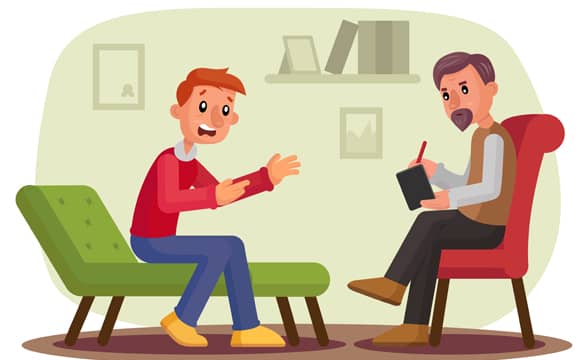
Gambling addicts have many ways out of this difficult position. The main challenge addicts face has to do with the fact that they are reluctant to admit they have a problem. Forcing therapy or treatment options on individuals rarely work, as an addict is much more likely to resist help unless they have opted into it.
To this end, all recovery and treatment processes are predicated on the willingness of participants. An individual who acknowledges that they have a gambling problem can start experimenting with ways that allow them to control their failings.
Cognitive Behavioral Therapy
Cognitive-behavioral therapy is a good approach to mental health. The therapy is predicated on finding the underlying reason for your behavior and why certain things trigger you. Most commonly, the conclusion is that certain experiences elicit a stronger response in your brain that sends a dopamine rush.
By teaching yourself to study, analyze, and understand these individual bursts of hormones, you can master and model your behavior in a way that is positive and healthy. There are many private and government treatment centers that offer this type of therapy.
Medication
Sometimes, an individual may experience a range of mental health problems that relate to and tie into gambling addiction. In fact, conditions such as OCD and ADHD may be the originator of negative emotions that make you seek validation or a quick thrill by engaging in reckless gambling behavior. Therefore some mood stabilizers and anti-depressants can go a long way in helping you deal with your gambling problem. Remember to not resort to medication on your own and seek professional help.
Self-help
Self-help for gambling addiction is becoming very popular. Some people prefer to try and deal with the issue on their own. This is a perfectly valid approach and individuals who are strong-willed and in the habit of addressing their behavior analytically stand to benefit. Joining peer groups is a way to have a natural self-check and
How to Avoid Relapsing?
Relapses are a problem gambler’s bigger fear. Unfortunately, they also happen quite often, which is not in itself something to be worried about. Mental health and achieving a healthy mindset toward your gambling problem are important, and a relapse is not the end of your road to recovery.
Just the opposite, you need to develop the right attitude towards this momentary setback. Instead of hiding it, fearing stigma the same way you probably first hid your gambling addiction, it’s best to open up to a loved one, your support group, or a health specialist.
#1 Talk It Out
Don’t let the cravings simmer and fester. Talk out your issue or urge to gamble with someone whom you trust and who has proven a moral bulwark for your recovery. The support of people whom you have come to trust and appreciate is essential to genuinely pushing past your addiction.
#2 Don’t Beat Yourself Up
If you do relapse, don’t spend too much time agonizing over this. It happens, and the fact you feel guilty means that you are advancing in your recovery. Talk out what you have achieved by relapsing and whether it was worth it.
Compare how you felt during recovery with how you felt when you satisfied your urge. More often than not, you will establish that your addiction is now physically and mentally unpleasant and your desire to gamble is much lesser than before you started treatment.
Relapses aren’t too bad when they happen, and if anything, they are a quick reality check if your treatment is working.
#3 Find Engaging Hobbies
Addiction simply means that you have enough energy and determination, notwithstanding the chemical factor involved. You can channel your determination to pursue an activity into something that has a far more beneficial effect on you.
Of course, moderation will be essential, as the goal is to master addictive behavior, not encourage it in one form or another. You can take up any hobby that has to do with sports, music, art, books or anything you wish, really.
#4 Exercise, It Helps
Even 15 minutes of exercise a day can help you achieve much better mental health. Exercise releases dopamine and boosts your cognitive and mental abilities, leading to a healthier lifestyle free of cravings to achieve momentary satisfaction.
#5 Remember, You Never Win
Remind yourself that your pursuit of the almighty dollar is illusionary and that gambling is rigged and statistically stacked against you. You cannot realistically expect the win simply because the odds are against you, and this is always the case.
Risk Factors That Lead to Gambling Addiction
Who is at a risk to develop a gambling addiction? Gambling problems come in many forms, but understanding the type of personality that it would take to go over the tipping point is important to understand impulse control disorders in the first place.
Common risk factors are now identified, but they are by no means final. However, gambling studies have proven with a fair degree of accuracy that there are several ways to understand who is the most at risk from pathological gambling.
- Sex – Gambling studies have established time and again that men are far more likely to develop a gambling addiction. According to researchers, this is due to the fact that boys cope with peer pressure with more difficulty, as they are not as open about their feelings, which drives anxiety and obsessive behavior.
- Age – Most problem gamblers have been exposed to gambling repeatedly in their teens, a habit that follows them to their mid-30s but usually dies down a little the older a person gets. However, exposing underage individuals to gambling products may have permanent effects on behavior.
- Outside influence – Seeing gambling as a role model from an early age is a premise for developing pathological gambling or compulsive behavior. Countries that do not restrict gambling advertisements report a much higher incidence of gambling addiction in their population.
- Mental health disorders – Different mental health disorders such as obsessive-compulsive disorder (OCD) or attention-deficit-hyperactivity disorder (ADHD) can have a negative effect on your compulsions and increase the risk of developing an addiction.
- Personality disorders – Character traits such as impulsivity, restlessness, loss of interest, or competitiveness may be a genetic predisposition for compulsive gambling behavior.
Gambling Addiction Stories
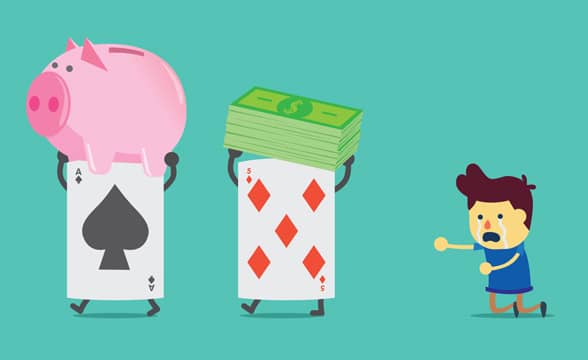
Maybe you have been told that you ought to hide your gambling problems for the sake of decency. Perhaps that used to be right, but support and reaching out to others is the best way to tackle gambling addictions.
Today, treatment professionals encourage their patients to share stories so that people who are only beginning to deal with their issues may know they are not alone. While your suffering may seem personal and exclusive, your emotions are universal and human, and by sharing, you can cope and move on with your life.
No problem gambling story should be buried or covered up. By opening up, you will be helping others to see a way out as well as assist researchers and professionals who are genuinely concerned to study and understand problem gambling and a gambler’s mind closer. All this health information can be put to good use.
To convince you that you are not in this alone, we have put together the stories of people whom you may know, but to whom you will feel a unique connection after hearing about their own experiences with gambling. Read the personal gambling stories of people who have been through the crucible of problem gambling:
- Gambler’s Help (AU)
- Gamblers Anonymous (UK)
- Council on Problem Gambling (US)
- Center for Addiction and Mental Health (CA)
Help Materials and Organizations
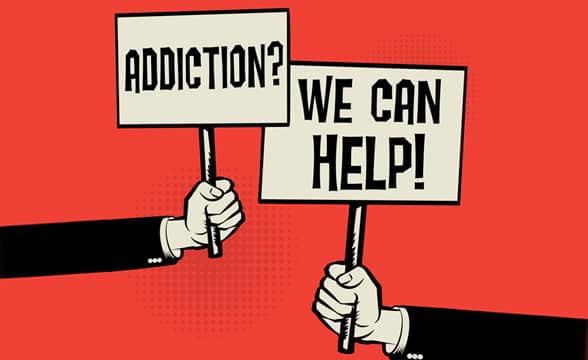
Pathological gamblers need help to address their gambling problem. This can be a loved one or trained medical professionals, a helpline, or a peer group. Whatever your choice and approach to tackling gambling addictions, you can rest assured that help is readily available.
Gamblers Anonymous (UK)
- Phone: 0330 094 0322
- Email: info@gamblersanonymous.org.uk
GamCare (UK)
- Phone: 0808 8020 133
- Email: 0808 8020 133
Council on Problem Gambling (USA)
- Phone: 1-800-522-4700
- Email: ncpg@ncpgambling.org
- Chat: npcgambling.org/chat
Center for Addiction and Mental Health (CA)
- Phone: 416 535-8501 / 1 800 463-2338
- Email: info@camh.ca
Gambler’s Help (AU)
- Phone: 1800 858 858
Addicted to Gambling? You Can Do Better
Pathological gambling is a condition that should be taken seriously and deserves the attention of health experts. Thankfully, attitudes towards problem gamblers have evolved and your struggle is recognized as a valid medical concern.
With the help of your family, friends, peer groups, a helpline, or treatment facility, you can make sure that you deal with your impulses and control your cravings.
By following your healthcare professional advice and building a safe environment for yourself, you can not only learn to live with a gambling addiction but outlive it. You can do better, and your friends, family, and people you love believe in you.
FAQ
Problem gambling, also known as compulsive gambling, pathological gambling, or gambling addiction in laymen’s terms, is a mental health issue that affects close to 0.5% of the population. It’s characterized by the compulsive need to spend money on gambling and gambling without a stop.
Yes, gambling addiction is a type of impulse control disorder and is a recognized mental health problem. Sufferers cannot control themselves from making potentially perilous decisions that impact their livelihoods, mental, and physical well-being.
Find a therapist, use self-exclusion tools, and join a support group. Fighting gambling addiction and avoiding relapsing is a lifetime battle. With proper nurturing and guidance, you can avoid returning to pathological gambling, though.
Healthcare facilities, free clinics, and non-for-profit organizations all offer help in dealing with problem gambling. Pathological gamblers can find numerous organizations willing to help, including GamblersAnonymous, GamCare, GamStop, and more.
Cognitive-behavioral therapy, peer groups, and gambling addiction treatment programs are among the most popular choices. Self-help is another viable option with free clinics offering pro-bono help to problem gamblers.
Gambling addiction begins with anxiety, overspending, and constant preoccupation with gambling games. Individuals experiencing gambling addiction may lie to, borrow, or steal money from friends, family, and employers to fuel their habit.
Mike made his mark on the industry at a young age as a consultant to companies that would grow to become regulators. Now he dedicates his weekdays to his new project a the lead editor of GamblingNews.com, aiming to educate the masses on the latest developments in the gambling circuit.

